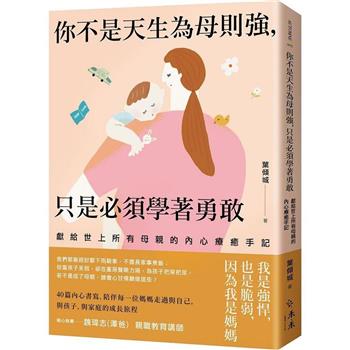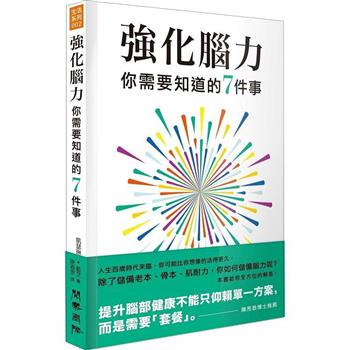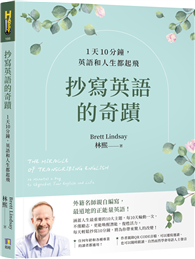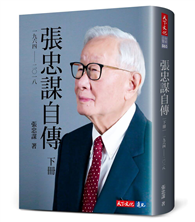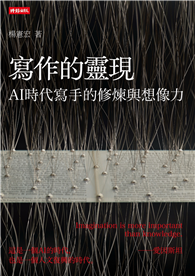This book is about the "Mechanism and Genetic susceptibility of Neurological disorders. It is a comprehensive exploration, penned by esteemed authors, and offers a profound understanding of these enigmatic ailments, their progression, and the strategic approaches employed to mitigate their impact. In this book, readers will uncover a wealth of knowledge surrounding the mechanistic intricacies that underlie various neurological disorders. Through meticulous research and insightful analysis, the authors elucidate the inner workings of these conditions, shedding light on the mechanisms responsible for their onset and progression. The central themes of this book are the recognition of the genetic landscape governing neurological disorders. It emphasizes the role played by a diverse array of genes in the development and progression of these conditions, highlighting the multifaceted genetic susceptibility that underlies their manifestation.
| FindBook |
有 1 項符合
Mechanism and Genetic Susceptibility of Neurological Disorders的圖書 |
 |
Mechanism and Genetic Susceptibility of Neurological Disorders 出版社:Springer 出版日期:2024-03-28 語言:英文 規格:精裝 / 普通級/ 初版 |
| 圖書館借閱 |
| 國家圖書館 | 全國圖書書目資訊網 | 國立公共資訊圖書館 | 電子書服務平台 | MetaCat 跨館整合查詢 |
| 臺北市立圖書館 | 新北市立圖書館 | 基隆市公共圖書館 | 桃園市立圖書館 | 新竹縣公共圖書館 |
| 苗栗縣立圖書館 | 臺中市立圖書館 | 彰化縣公共圖書館 | 南投縣文化局 | 雲林縣公共圖書館 |
| 嘉義縣圖書館 | 臺南市立圖書館 | 高雄市立圖書館 | 屏東縣公共圖書館 | 宜蘭縣公共圖書館 |
| 花蓮縣文化局 | 臺東縣文化處 |
|
|
內容簡介
作者簡介
Andleeb Khan is an associate professor in Integral University, Lucknow, India. She has completed her doctorate from Jamia Hamdard, New Delhi, India in toxicology with specialization in natural and active constituents from plants for prevention of Alzheimer’s Disease. She has joined as Faculty at Jazan University, Saudi Arabia. She has a teaching and research experience of more than 10 years in neurodegenerative disorders and their prevention with medicinal plants, their active principles and nano formulations. She has published various research articles in national and international journals and contributed many book chapters with international publishers Dr. Khan is on the editorial board panel and reviewer of various international journals She has received many awards, appreciations and recognitions for her services to the science. She holds life memberships of various international organisations and is active participant in national and international scientific events. Currently, Dr. Khan is engaged in studying the molecular mechanism of Alzheimer’s disease, Ischemic stroke, Parkinson’s Disease, and their prevention by various active principles from natural sources and nano formulations.
Mashoque Ahmad Rather is a highly accomplished postdoctoral research associate in the department of molecular pharmacology and physiology at the College of Medicine, University of South Florida, United States. His academic journey and research career have been distinguished by a deep commitment to understanding the critical neuroscientific aspects, particularly in the context of alzheimer’s disease. Dr. Rather’s educational background includes a doctorate in biotechnology, with a specialization in neuroscience, which he earned from Annamalai University in Tamil Nadu, India. His rigorous training and expertise in the field of neuroscience have served as a solid foundation for his subsequent research endeavors.
With over 8 years of dedicated research experience, Dr. Rather has made significant contributions to the scientific community. He has an impressive track record of authoring numerous research papers published in reputable international journals. Additionally, his expertise extends to the creation of insightful book chapters that have further enriched the scientific literature. Dr. Rather is a reviewer of various international journals. He is actively engaged in investigating the molecular mechanisms underlying Tau pathology and cerebral vascular dysfunction in alzheimer’s disease.Ghulam Md Ashraf is working as Associate Professor in Department of Medical Laboratory Sciences, College of Health Sciences, University of Sharjah, Sharjah United Arab Emirates. He has a PhD degree in biochemistry with over thirteen years of teaching and research experience in various disciplines of biological and medical sciences. His primary fields of research are biochemistry and neurology, currently focusing on understanding the molecular and behavioral mechanism of effects of anti-diabetic drugs in psychotic and dementia conditions. Dr. Ashraf’s lab is currently investigating the effect of anti-diabetic drugs in the possible attenuation/reversal of anti-psychotic drugs induced weight gain in psychotic conditions. He is also investigating molecular and behavioral mechanisms of novel therapeutic combinations in multiple sclerosis and Alzheimer’s disease.
Dr. Ashraf has published various research articles Dr. Ashraf is also involved extensively in editorial roles in renowned scientific journals .He has been professionally associated with the Royal Society of Medicine (Fellow), Royal Society of Biology (Member), American Society for Biochemistry and Molecular Biology (Member) and Canadian Association of Neuroscience (Member).
For his scientific contributions, Dr. Ashraf was approved as a subject of biographical record in Marquis Who’s Who in the World in 2020. He has been recognized as Expertscape World Expert in Alzheimer’s disease and Neurodegenerative Disorders since 2020. For his exemplary contribution to scientific research. Dr. Ashraf has been listed in Top 2% Scientists Worldwide since 2020 (announced by Stanford-Elsevier BV).
|


